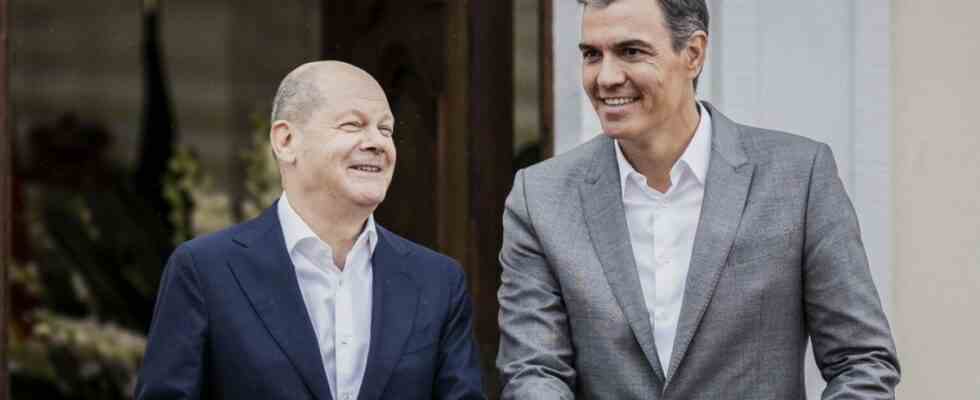The far more important press conference against the backdrop of Meseberg Castle, the baroque building north of Berlin completed in 1739, where the cabinet is in retreat these days, is only scheduled for after 5 p.m. Then, it is said, several federal ministers step in front of the cameras and take stock of the first day.
At noon, however, the Chancellor will first appear with a foreign guest, the Spanish Prime Minister Pedro Sanchez. Alongside Industry President Siegfried Russwurm and Andrea Nahles, head of the Federal Employment Agency (and former Labor Minister and SPD leader), he has been invited to Meseberg to hold discussions with members of the government. In the talks with Russwurm, Nahles and Sanchez, too, the one big topic – the Russian war of aggression and its consequences – is likely to overshadow all other topics.
Scholz and Sanchez may have talked about how to counter Russia’s ruler Putin, especially in his attempt to split the EU with the help of energy policy. As a reaction to the gas crisis, the Spanish government passed comparatively rigid savings targets for the citizens in August. For example, shop windows and public buildings may no longer be illuminated after 10 p.m., and air conditioning systems in public facilities must be turned off when the temperature is 27 degrees.
The German Chancellor and the Spanish head of government, both Social Democrats by the way, may have also discussed the possibility of building a pipeline between Spain and France in order to be able to better supply Central Europe with gas from the south. The Spanish government recently said that such a pipeline could be built in ten to twelve months. The project was rejected years ago, also because Germany relied on cheap gas from Russia.
What is currently being discussed domestically is much more sensitive for Scholz and his government team than the consultations with Sanchez and the other guests. The traffic light gives off an increasingly conflicted image in public, the partners pick at each other in interview statements, the nervousness is great. Economics Minister Robert Habeck (Greens) is under considerable pressure because of the gas allocation that was designed in his ministry in a great hurry and, according to many critics, with technical errors. Habeck has already promised improvements, but that has not silenced the criticism so far.
The government is under pressure to deliver results during the two-day retreat, particularly with a relief package. In view of the exorbitantly increasing energy prices, people with small and middle incomes should be supported in the long term. But so far the government has not been able to come to an agreement. Finance Minister Christian Lindner (FDP) rejects proposals that come from the ranks of the SPD and Greens – and vice versa. Scholz promises a quick decision on the relief on Tuesday. The aim is to get a “relief package that is as tailor-made as possible, as efficient as possible, as targeted as possible”.

